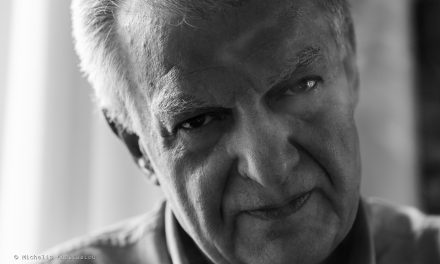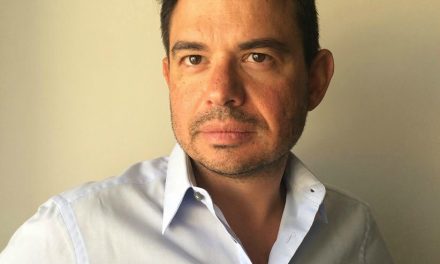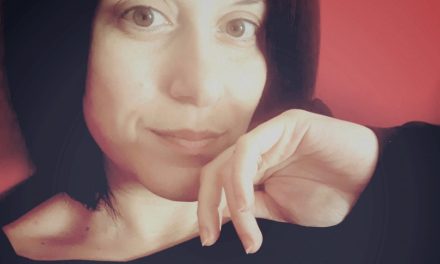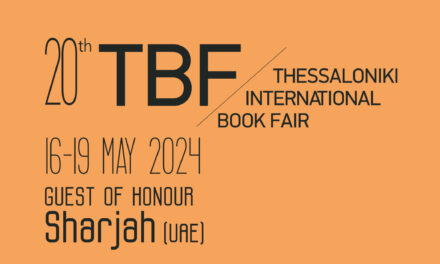Georgia Sylleou was born in Thessaloniki in 1962.She studied classical music and singing at the State Conservatory of Thessaloniki and then contemporary music movements and theater in Austria, Germany and the Netherlands. She has participated in many international festivals of music, literature and performing arts. She has released twelve personal CDs. Her first book On the Cape (Odos Panos), was published in 2012 and her second Down in the sky in 2018 (Polis). Her third book Her own mirror (Polis, 2022) received the Best Novel Award for 2022 of the “Anagnostis” literary magazine.
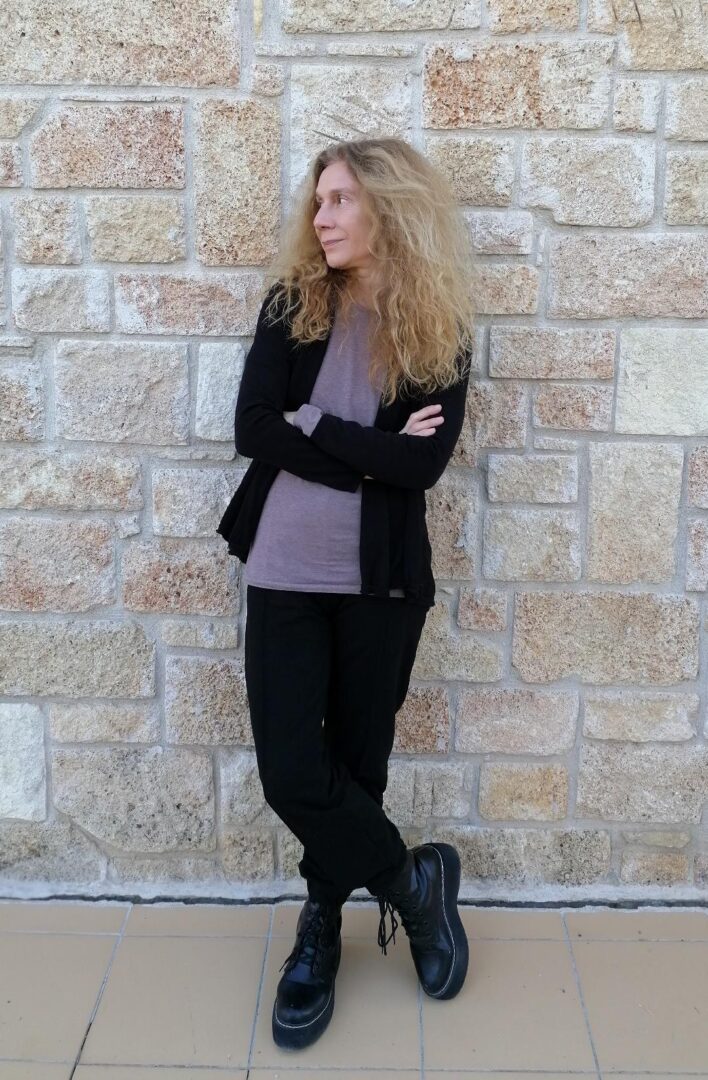
Your latest writing venture Her own mirror received the ‘Αnagnostis’ Literary Award for Best Νοvel 2022. Tell us a few things about the book.
It is a novel that unfolds in three cities, with three protagonists and three minor characters. Two sisters alternately narrate their personal adventure from childhood to adulthood, while at the same time outlining the character of the protagonist, their cousin Nora, and each one’s special relationship with her. Nora, although she is the only one who never appears to speak in the first person, is the dominant heroine, the one who moves the threads of the plot and greatly influences the development of the lives and destinies of the two girls.
She never reveals her own mirror, her own version of events: the incestuous relationship with her father, his abusive behavior and ultimately his violent end at the hands of herself and her older cousin, Hermione. The questions that are raised in the book and ultimately remain unanswered, are those of the guilt of the victims and the perpetrators, of atonement, of forgiveness. The mirror functions in the plot in two main ways: as protection and as a reflection of different perspectives of reality.
“I consider time to be single and undivided. So, of course, the past is not finished, since it still exists in the present moment. Therefore, it changes our perspective, when questions are answered that we could not find a solution to before”. How does the past interweave with the present and the future in your books? What is the role of memory in this respect?
The notion and paradox of time have preoccupied me in all three of my books, as well as in most of my published short stories. In Her own mirror there are numerous flashbacks, the flow is cinematic – I was writing and at the same time I was watching the events pass by in front of me frame by frame. As for memory, it is a large reservoir from which one draws images, stories, a reality that remains alive and often merciless.
Yet, all this material needs processing. Imagination is necessary to transform personal experience into something else, so that we do not constantly have autobiographical references, but a new, transformed version of our private adventures, unless we are pursuing a deeply confessional autobiography. As far as I am concerned, it also requires abstraction, distance, analytical thinking and a kind of rigor towards ourselves and the characters we create, so that we don’t get caught up in easy sentimentality.
What about language? What role does language play in your writings?
Writing is speech, it is words. Since I was little, I saw the light, the shadows, the colors, the smells in words. I turned the words into pictures and then into stories. Words can be ambiguous, identical, metonymic, evasive, literal, and clear, a bunch of things that turn writing into a charming adventure. Let me refer to Beckett’s last poem entitled ‘Comment dire, What Is the Word’. Yes, I believe there are words that have not been said, that cannot be said. Personally, I seek simplicity in expression, I do not seek originality; it is more than welcome if it comes, but it’s not an end in itself. I write slowly and edit the text and details very carefully until I feel it is worth publishing and reading.
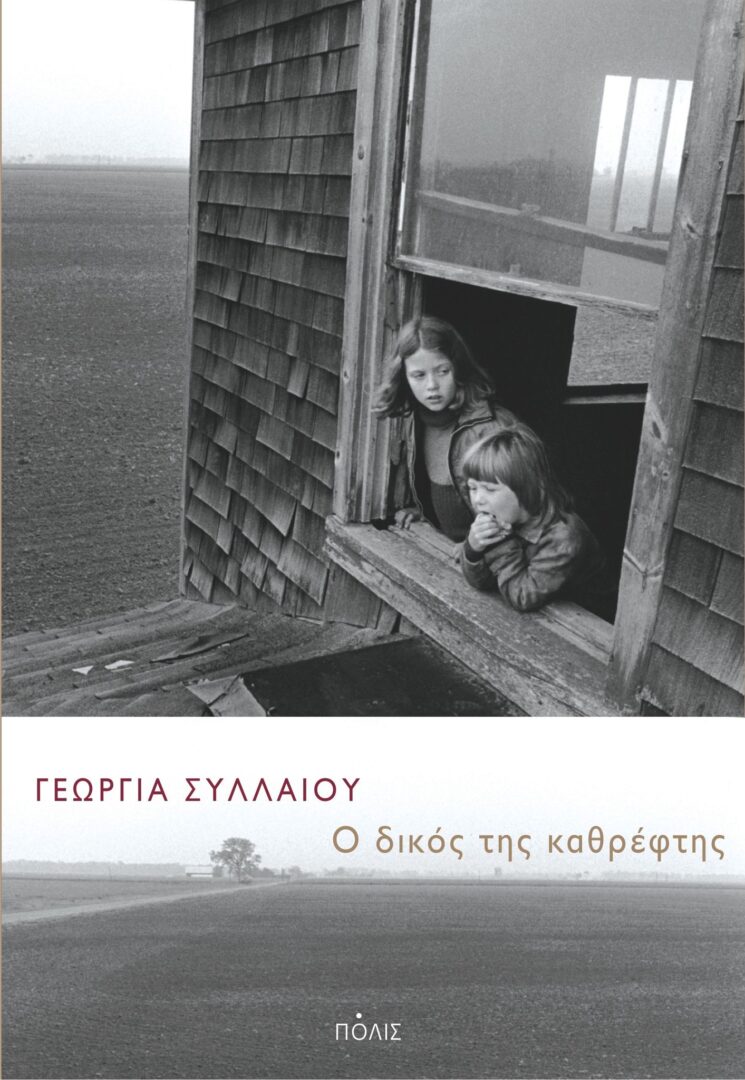
Three books within a decade. What has changed and what has remained the same? Are there recurrent points of reference in your books?
My first book had a fragmentary character; when I re-read it I sometimes smile at its carelessness, its surreal liberties, the alternation of styles. The next two are closer to each other. The structure becomes clearer, speech is more elaborate, especially in the last one. Nevertheless, there are common elements in all three: the obsession with death, the agony of doubt, loss, guilt, the workings of memory, broken and defeated people. Unrequited and strange loves. Anything that deviates from what is socially acceptable.
There are no winners, there are no brave people who decide to change the world, the boundaries are fluid. To return to Her Own Mirror, the boundaries between moral and dishonest are indiscernible, characters regress, seeking redemption that never comes.
“Maybe art constitutes a parallel reality and I could accept that in a way art is comforting”. How does literature converse with the world it inhabits? Could art be used to imagine what could be radically different realities?
Literature and art in general indeed create parallel worlds. Imagination has this potential, this function. I believe that if I had not resorted my own fabricated parallel worlds during my childhood and adolescence I would have gone mad. We live in a violent, fast-changing, competitive world. Not all of us can cope with the harshness of this reality without paying the corresponding price. Mental as well as physical endurance is tested every day. However, we usually survive, even if we lose parts of ourselves along the way. In the past, losses, the end of beneficial illusions and the dimming of my dreams could literally crush me. But growing up, illusions dwindle along with expectations. I face and live the same everyday life, so I know very well that I am not exempt from the rules of being forced to adapt to a new world, very foreign to my temperament. And of course, I pay the price.
Would you say that writing and music constitute communicating vessels? Where does literature meet music in yourwork?
Music has been quite conducive to the structure of writing. Despite appearances, my involvement with writing preceded that with music. My musical studies provided me with discipline, a sense of proportion, with the ability to be direct and at the same time keep my distance. As for the first part of the question, it is known that speech and music have been closely interrelated from antiquity to modern creation producing admirable works of art.
*Interview by Athina Rossoglou
TAGS: LITERATURE & BOOKS | READING GREECE

